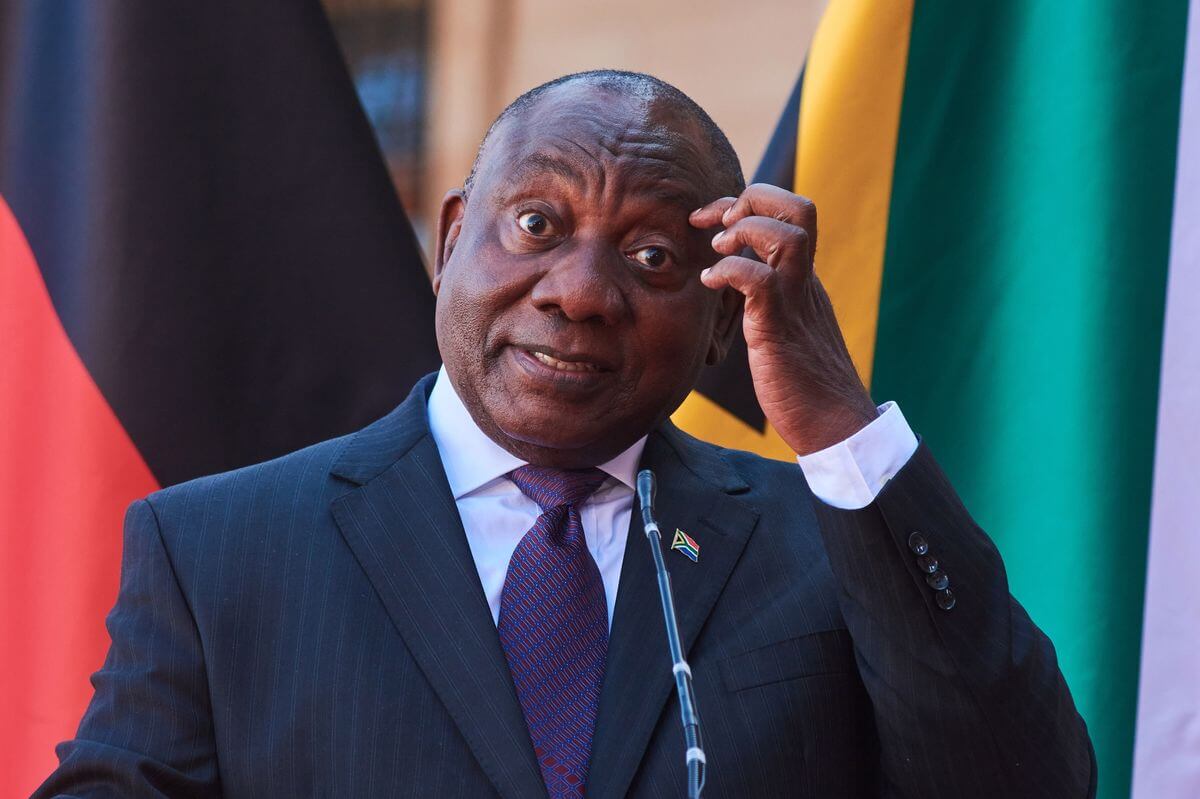South African President Cyril Ramaphosa confirmed Saudi Arabia’s interest in joining the BRICS grouping, which currently comprises Brazil, Russia, India, China, and South Africa.
Ramaphosa, who was on a two-day state visit to the Kingdom, told the media on Sunday that Crown Prince and newly-appointed Prime Minister Mohammad bin Salman (MBS) “expressed Saudi Arabia’s desire to be part of BRICS.” He added that the kingdom is “not the only country” to have done so.
The president noted that he informed MBS that BRICS will hold a summit in South Africa next year under its chairship and that “the matter is going to be under consideration.” “A number of countries are making approaches to BRICS members, and we have given them the same answer that it will be discussed by the BRICS partners and thereafter a decision will be made,” he revealed.
His Excellency President @CyrilRamaphosa with His Royal Highness Crown Prince and Prime Minister of the Kingdom of Saudi Arabia Mohammad bin Salman bin Abdulaziz al Saud during his State Visit to Saudi Arabia#SAinSaudiArabia 🇿🇦🇸🇦#BetterAfricaBetterWorld 🌍 pic.twitter.com/U5iWEgtKaF
— Presidency | South Africa 🇿🇦 (@PresidencyZA) October 15, 2022
During his visit to the Kingdom, Ramaphosa also signed $15 billion worth of agreements and 17 memorandums of understanding (MoU) in the energy (petroleum and petrochemicals as well as solar, wind, and atomic energy), climate change (to reduce hydrocarbon emissions), fisheries, agriculture sectors. The leaders also pledged to establish a Saudi-South Africa Joint Investment Fund and a joint business council. In addition, they exchanged MoUs related to arts and culture, communication and technology, health, social development, and the mutual recognition of seafarers’ certificates.
Ramaphosa and MBS also agreed to align South Africa’s National Development Plan 2030 with Saudi Arabia’s Vision 2030 to pave the way for greater convergence in renewable energy, industry, mining, tourism, and private sector investment.
“Having started in 2018 with a commitment by Saudi Arabia to invest 10 billion dollars into the South African economy, in many ways was planting the seed and that seed has been germinating and thus far one billion dollars has been invested in South Africa through a company called ACWA Power”, Ramaphosa noted.
His Excellency President @CyrilRamaphosa has arrived in the Kingdom of Saudi Arabia through the King Abdulaziz International Airport and is received by His Royal Highness Prince Khaled bin Faisal Al Saudi the Governor of Mekkah.
— Presidency | South Africa 🇿🇦 (@PresidencyZA) October 14, 2022
#SAinSaudiArabia #BetterAfricaBetterWorld pic.twitter.com/OH2CiCQjJ3
Bilateral trade between the two countries stands at around $5 billion. Ramaphosa said in a press conference following the Saudi Arabia-South Africa Investment Conference on Saturday: “We think we can increase it further in the next few years,” noting that he has been “encouraged by the positive feedback we received from these events, the warmth in the business relationship and the great appetite by the private sector from both countries for deeper partnerships.”
Moreover, a press release prior to his visit noted that increased trade ties with Saudi Arabia could benefit the entire African continent, referring to the African Continental Free Trade Area (AfCFTA). Likewise, he added after the Investment Conference that “Saudi Arabia is positioned as the gateway to the Middle East.”
South African President Cyril Ramaphosa said that Saudi Crown Prince Md. Bin Salman told him, "no need to change the S, because S stand for South Africa, and Saudi Arabia. They have a great desire. They are not the only country that find BRICS attractive"
— Sidhant Sibal (@sidhant) October 18, 2022
Saudi Arabia’s interest to join the BRICS grouping comes just a few months after Argentina and Iran submitted their official applications to join the grouping. Their candidature has already received the backing of several BRICS leaders.
The BRICS countries are viewed as emerging economies that pose a counter to Western hegemony. The five-nation bloc presently accounts for 40% of the world’s population, approximately 26% of the global economy, and 18% of global trade.
The State Visit to Saudi Arabia was about advancing diplomatic and political relations between our two countries, but it is the economic relations that underpinned the substance of our visit.#SAinSaudiArabia pic.twitter.com/zuVPODGy1c
— Cyril Ramaphosa 🇿🇦 (@CyrilRamaphosa) October 16, 2022
Efforts at broadening its influence were seen in the BRICS+ initiative of 2017 that brought together new emerging economies to jointly tackle the challenges to global sustainable development. In the same year, Egypt, Mexico, the Republic of Guinea, Tajikistan, and Thailand were invited to attend the summit in Xiamen. The New Development Bank (NDB), an initiative of the bloc, also roped Bangladesh, the UAE, Uruguay, and Egypt into its fold last year.
Furthermore, alongside Iran and Argentina, the leaders of Algeria, Egypt, Indonesia, Kazakhstan, Senegal, Uzbekistan, Cambodia, Ethiopia, Diji, Malaysia, and Thailand took part in the summit hosted by China this June.

